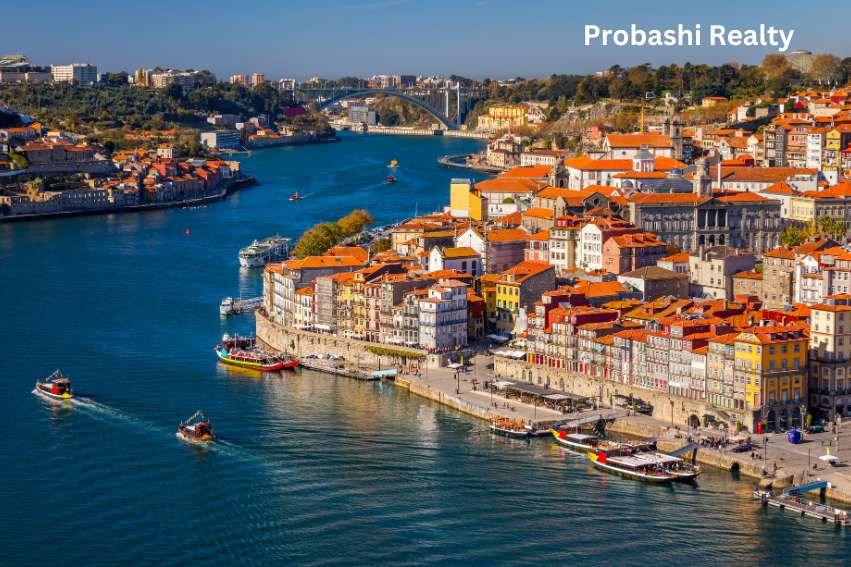In Portugal, mortgages, commonly known as “hipotecas,” are a primary method of financing property purchases. The Portuguese mortgage market offers various types of loans to accommodate different borrower preferences and financial situations. Common mortgage types include fixed-rate mortgages, which provide stability with a consistent interest rate throughout the loan term, and variable-rate mortgages, where interest rates can fluctuate based on market conditions. Additionally, interest-only mortgages and combination mortgages, which combine elements of fixed and variable rates, are also available. The mortgage process in Portugal typically involves several steps, starting with pre-approval from a lender, followed by property valuation, documentation submission, loan application, underwriting, offer acceptance, signing the mortgage contract, property registration, loan disbursement, and repayment. Throughout this process, borrowers should stay informed about mortgage regulations, compare rates and terms from different lenders, and carefully review loan documents before committing to a mortgage.
Portugal mortgage type and process:
-
Fixed-Rate Mortgages (Taxas Fixas): Fixed-rate mortgages provide borrowers with stability by offering a consistent interest rate throughout the loan term. Borrowers can lock in a rate for a specified period, typically ranging from one to thirty years, providing predictability in monthly repayments.
-
Variable-Rate Mortgages (Taxas Variáveis): Variable-rate mortgages, also known as adjustable-rate mortgages (ARMs), have interest rates that can fluctuate based on market conditions. The interest rate is typically tied to an index, such as the Euribor or the Portuguese Base Rate (EURIBOR or Taxa de Juro de Referência), with adjustments made periodically.
-
Interest-Only Mortgages (Hipotecas Apenas com Juros): Interest-only mortgages allow borrowers to make payments covering only the interest portion of the loan for a specified period, typically ranging from one to five years. During this period, borrowers are not required to repay the loan principal, resulting in lower initial payments.
-
Combination Mortgages (Hipotecas Combinadas): Combination mortgages offer a mix of fixed and variable interest rates. Borrowers can choose to fix the rate for a certain period, followed by a variable rate. This provides some stability while also allowing borrowers to potentially benefit from lower rates in the future.
The mortgage process in Portugal typically involves several steps:
-
Pre-Approval (Pré-aprovação): Borrowers start by obtaining pre-approval from a lender, providing information about their financial situation and the property they intend to purchase.
-
Property Valuation (Avaliação do Imóvel): Lenders conduct a valuation of the property to assess its market value and determine the loan-to-value ratio (LTV), which influences the loan amount they’re willing to offer.
-
Documentation (Documentação): Borrowers compile and submit required documentation, including proof of income, employment history, identity verification, and property details.
-
Loan Application (Pedido de Empréstimo): Borrowers complete the mortgage application, providing details about the desired loan amount, repayment term, and preferred interest rate type.
-
Underwriting (Análise de Risco): Lenders review the loan application and documentation, assessing the borrower’s creditworthiness, financial stability, and property value to determine loan approval.
-
Offer and Acceptance (Oferta e Aceitação): If approved, the lender issues a mortgage offer outlining the loan terms, including the interest rate, repayment schedule, fees, and conditions. The borrower reviews and accepts the offer.
-
Signing the Mortgage Contract (Assinatura do Contrato de Hipoteca): Borrowers sign the mortgage contract, agreeing to the terms and conditions specified by the lender.
-
Property Registration (Registo Predial): The property ownership registration process takes place, transferring ownership to the borrower and registering the mortgage with the relevant authorities.
-
Disbursement and Repayment (Desembolso e Reembolso): Once the property registration is complete, the lender disburses the loan funds to the seller or relevant parties, completing the property purchase transaction. Borrowers make regular mortgage payments according to the agreed-upon schedule, including principal and interest, until the loan is fully repaid.
Throughout the mortgage process, borrowers should stay informed about mortgage regulations, compare rates and terms from different lenders, and carefully review loan documents before committing to a mortgage. Consulting with a mortgage advisor or real estate professional can also provide guidance and support throughout the process.
Portugal Mortgage Tips:


